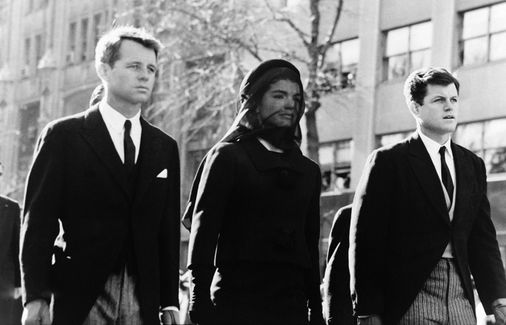Robert F. Kennedy Jr. spouts nonsense, but some conspiracy theories are true

Presidential candidate Robert F. Kennedy Jr. spouts all kinds of nonsense. A longtime anti-vaxxer, he recently suggested that the COVID-19 virus was “a genetically engineered bioweapon that may have been ‘ethnically targeted’ to spare Ashkenazi Jews and Chinese people,” according to the New York Post.
Many of his rants are offensive or unhinged, or both. The Wall Street Journal has called his campaign “a mix of nostalgia and conspiracy theories.” Yet I find at least two of his unpopular beliefs quite plausible.
In an interview with New Yorker editor David Remnick, Kennedy explained why he thought the CIA had a hand in the 1963 assassination of his uncle, President John F. Kennedy. It was payback for JFK’s abandonment of the 1961 CIA-sponsored Bay of Pigs invasion of Cuba, he explained.
I don’t have a theory of the Kennedy assassination, but the younger Kennedy’s views are pretty mainstream. Only one-third of Americans surveyed believe a lone gunman killed the president. In 2013, on the 50th anniversary of the assassination, a Gallup poll revealed that 61 percent of Americans believed Kennedy died as a result of a conspiracy, involving members of the Mafia, the federal government, or the CIA, in descending order.
Writing in The New Republic, Walter Shapiro whomped on RFK Jr.’s purportedly conspiratorial idea that “the conflict in Ukraine [is] a ‘proxy war’ between the United States and Russia.” But isn’t it? Facing an opponent armed with $23.5 billion worth of weaponry from the United States, the Russians certainly view it as a proxy war, and I agree with them.
Sometimes one person’s conspiracy theory is another person’s eminently arguable proposition.
For example: the Federal Reserve. I remember covering Scott Brown’s 2009 Senate campaign (the successful one), where I first saw “Abolish the Fed” signs. What the heck? I had been unaware that abolishing the Fed, or regulating it out of existence, had been a crackpot dream since its founding in 1913.
How unsurprising that presidential aspirant Governor Ron DeSantis of Florida recently lashed out at the Fed, suggesting that the mostly men in grey flannel suits were going to prevent Americans from pumping gasoline and buying guns. DeSantis called the Fed “a central bank which does not have our interest at heart.”
Why so many conspiracy theories targeting the Fed? Because it was a conspiracy! Don’t take my word for it. In his book, “America’s Bank: The Epic Struggle to Create the Federal Reserve,” Roger Lowenstein describes how Rhode Island Senator Nelson Aldrich arranged a secret meeting of money men at Georgia’s Jekyll Island Club, “the richest, the most exclusive, the most inaccessible club” in the world. Working with representatives of J.P. Morgan & Co., the National City Bank, Wells Fargo & Co., and the US Treasury, Aldrich helped midwife the country’s new central bank, the Federal Reserve System.
Details of the Jekyll Island confab remained secret for more than a decade. “The bankers spoke with bitterness at having to steal about as though they were criminals,” Lowenstein writes. “They were conspirators, but patriotic conspirators.”
In his timely new book about conspiracy theories, “Under the Eye of Power: How Fear of Secret Societies Shapes American Democracy,” Colin Dickey writes entertainingly about conspiracy theories, real and imagined. Real: Yes, the FBI spied on all manner of legitimate political organizations for decades. Imagined: Enslaved people working “under the control of the reptilians” beneath the runways of Denver’s airport. Me thinks not.
Dickey describes how the antebellum “South became infused with, and ultimately gripped with, conspiracy theories,” in particular, fears of uprisings from enslaved people. “If there was a single term to describe the mood in the South,” he writes, “it was ‘paranoid.’” But he then cites recent scholarship showing that “slave uprisings were in fact quite common, along with smaller forms of guerilla action that were constant.”
A conspiracy theory that proved to be true. There are plenty of them around.
Alex Beam’s column appears regularly in the Globe. Follow him on Twitter @imalexbeamyrnot.
This article has been archived for your research. The original version from The Boston Globe can be found here.


